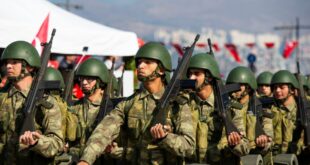The timetable for a Syrian political transition, which leaves President Bashar Assad in power for at least another year, will upset the United State’s traditional Arab allies, former US Ambassador to Iraq James Jeffrey said.
In December, the UN-sponsored International Syria Support Group (ISSG) reached an agreement on a timetable for a Syrian political transition. The agreement calls for an opening of talks between the Syrian government and the opposition, and sets a date of May 2017 for official elections.
“[The United States] is going to try to shoehorn the Sunni-Arab world into a [Syrian] deal that leaves Assad in power… and that is just going to further infuriate the Saudis, the Turks, and everybody else, and further drive the region into total chaos,” Jeffrey said Wednesday of US strong-arm tactics with its Arab allies.
Beginning in 2011, the United States called for the ouster of President Assad, a tactic supported by Turkey, Saudi Arabia and other nations. During the most recent UN-sponsored negotiations to resolve the Syrian crisis, the United States backed down from the stance, arguing that Assad has a role to play in the transition.
The ISSG includes Russia, Iran, the Arab League, China, Russia, Saudi Arabia, Turkey, the UAE, and the United States.
 Geostrategic Media Political Commentary, Analysis, Security, Defense
Geostrategic Media Political Commentary, Analysis, Security, Defense





